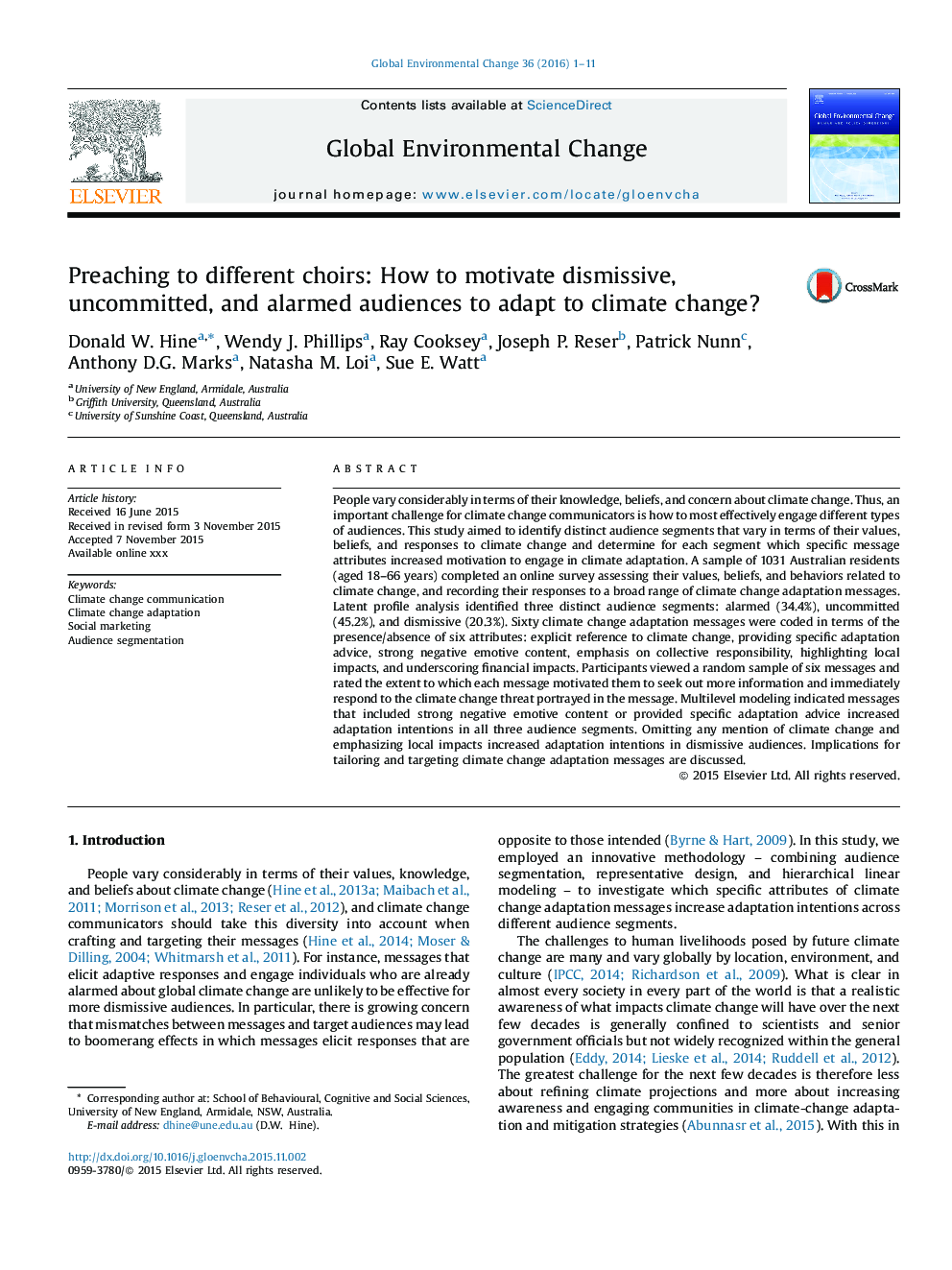| Article ID | Journal | Published Year | Pages | File Type |
|---|---|---|---|---|
| 7469480 | Global Environmental Change | 2016 | 11 Pages |
Abstract
People vary considerably in terms of their knowledge, beliefs, and concern about climate change. Thus, an important challenge for climate change communicators is how to most effectively engage different types of audiences. This study aimed to identify distinct audience segments that vary in terms of their values, beliefs, and responses to climate change and determine for each segment which specific message attributes increased motivation to engage in climate adaptation. A sample of 1031 Australian residents (aged 18-66 years) completed an online survey assessing their values, beliefs, and behaviors related to climate change, and recording their responses to a broad range of climate change adaptation messages. Latent profile analysis identified three distinct audience segments: alarmed (34.4%), uncommitted (45.2%), and dismissive (20.3%). Sixty climate change adaptation messages were coded in terms of the presence/absence of six attributes: explicit reference to climate change, providing specific adaptation advice, strong negative emotive content, emphasis on collective responsibility, highlighting local impacts, and underscoring financial impacts. Participants viewed a random sample of six messages and rated the extent to which each message motivated them to seek out more information and immediately respond to the climate change threat portrayed in the message. Multilevel modeling indicated messages that included strong negative emotive content or provided specific adaptation advice increased adaptation intentions in all three audience segments. Omitting any mention of climate change and emphasizing local impacts increased adaptation intentions in dismissive audiences. Implications for tailoring and targeting climate change adaptation messages are discussed.
Related Topics
Life Sciences
Environmental Science
Environmental Science (General)
Authors
Donald W. Hine, Wendy J. Phillips, Ray Cooksey, Joseph P. Reser, Patrick Nunn, Anthony D.G. Marks, Natasha M. Loi, Sue E. Watt,
